DNA mutates – that’s what it does. If we go back 30,000 years there weren’t any domestic dogs, just wolves. But through a process of DNA mutation and selection humans have created hundreds of different breeds of dog, with all their distinct body sizes, shapes and behaviours. None of this would have been possible if DNA didn’t mutate.
Almost every cell in a dog’s body contains around 2.4 billion nucleotides (letters) of DNA. To put that amount of DNA into perspective, if every nucleotide of DNA was 1mm long, the dog’s genome would stretch from Lands End to John O’Groats and back again. And all of this DNA is copied every time a cell divides. Cells have very good mechanisms for spotting copying errors and repairing them, but, given the size of the genome and the number of cell divisions required to ‘grow’ an adult dog (estimates for the number of cells in an adult dog range from 10 to 50 trillion) it is inevitable that a small number of DNA mistakes slip through the net. Geneticists call these mistakes ‘mutations’ or ‘variants’.
Some variants do no harm, and some are even advantageous. But some are deleterious, meaning that they stop a protein functioning as it should, and these deleterious mutations can cause inherited diseases.
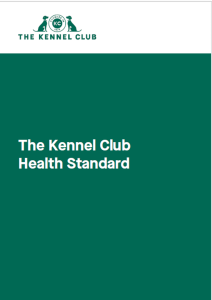
The Kennel Club recently published its Health Standard, which lists, for every Kennel Club registered breed, a list of health checks that are recommended prior to breeding. The list contains a number of different clinical screening tests, such as the BVA/KC screening schemes for hip and elbow dysplasia and the BVA/KC/ISDS Eye screening scheme, also the DNA tests that are relevant to each breed. The Health Standard is divided into two lists – Good Practice and Best Practice tests; the former are tests that are considered a minimum requirement for breeders, whereas the latter are tests for conditions which are still important in a breed but may not be as critical as those listed as good practice.
Out of 224 Kennel Club registered breeds, 88 of them have at least one DNA test listed as good practice or best practice. Some DNA tests are shared between breeds, because breeds can share the same disease mutations, and some breeds have multiple relevant tests, but overall there are 106 unique DNA tests that are relevant across UK dogs breeds.
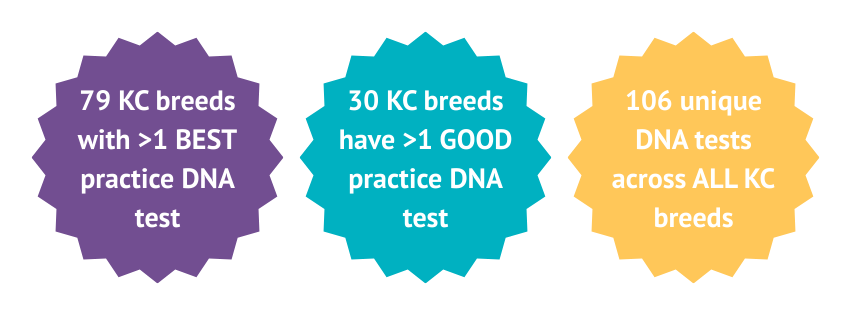
Each one of these tests is for a different disease-causing mutation that has occurred in a single dog, somewhere in the past, and that has become sufficiently widespread within the breed to be noticed by breeders, vets and/or researchers. And remember, the Health Standard is a list of DNA tests for disease mutations that are deemed to be of sufficient concern to warrant widespread testing. There are many other DNA tests that detect disease mutations that remain fairly rare.
So, although individual DNA mutation events are rare, they occur spontaneously, and it can be more or less guaranteed that a disease-causing mutation will occur in every breed at some point in its history. Not all disease mutations become a problem. If they occur in a dog that is not bred from then the mutation will die with the dog, and nobody will ever know about it. But, if it occurs in an animal that produces lots of offspring, the mutation can easily become widespread within a breed and result in affected dogs being born.
The Canine Genetic Centre (CGC) exists to find disease-causing mutations. Of the 106 different DNA tests that are listed in the Kennel Club Health Standard, 25 have been identified by the CGC, and 32 different breeds have the CGC to thank for at least one DNA test.
And to clarify, DNA testing laboratories do not usually identify the mutations that cause diseases; they simply offer a commercial testing service based on the published findings of research groups such as the CGC. Research groups and commercial DNA tests providers are a bit like authors and bookshops; once an author has written a book, that book will be available to buy from many different book shops. But only once the author has written and published the book. If there were no authors, there would be no bookshops. Commercial DNA testing labs provide DNA tests for mutations that have been identified by research groups – without research groups, like the CGC, there would be no DNA tests.
The Canine Genetic Centre works closely with dog breed communities and veterinarians to recognise and characterise emerging inherited diseases, caused by new mutations, and to identify those novel mutations. The Canine Genetics Centre has the relevant expertise and infrastructure in place to identify new disease mutations quickly and easily, providing they have the funds to do so.
Operating alongside the CGC is Canine Genetic Testing (CAGT), the CGC’s own commercial DNA testing service. CAGT is run by a small, friendly team who are passionate about customer-service. And all profits are ploughed back into supporting the research done by the CGC. So please support them if you can – it’s a bit like shopping at your local, independent book shop rather than using Amazon!
You can help support the Canine Genetic Centre by becoming a Friend of the CGC or by making a one-off donation. Remember – new mutations occur all the time, in every breed, and you never know when your breed might need to turn to the CGC.

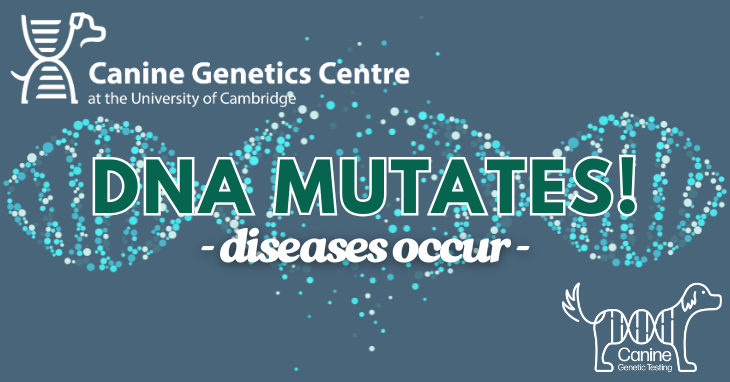
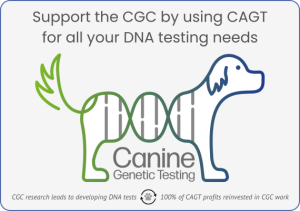
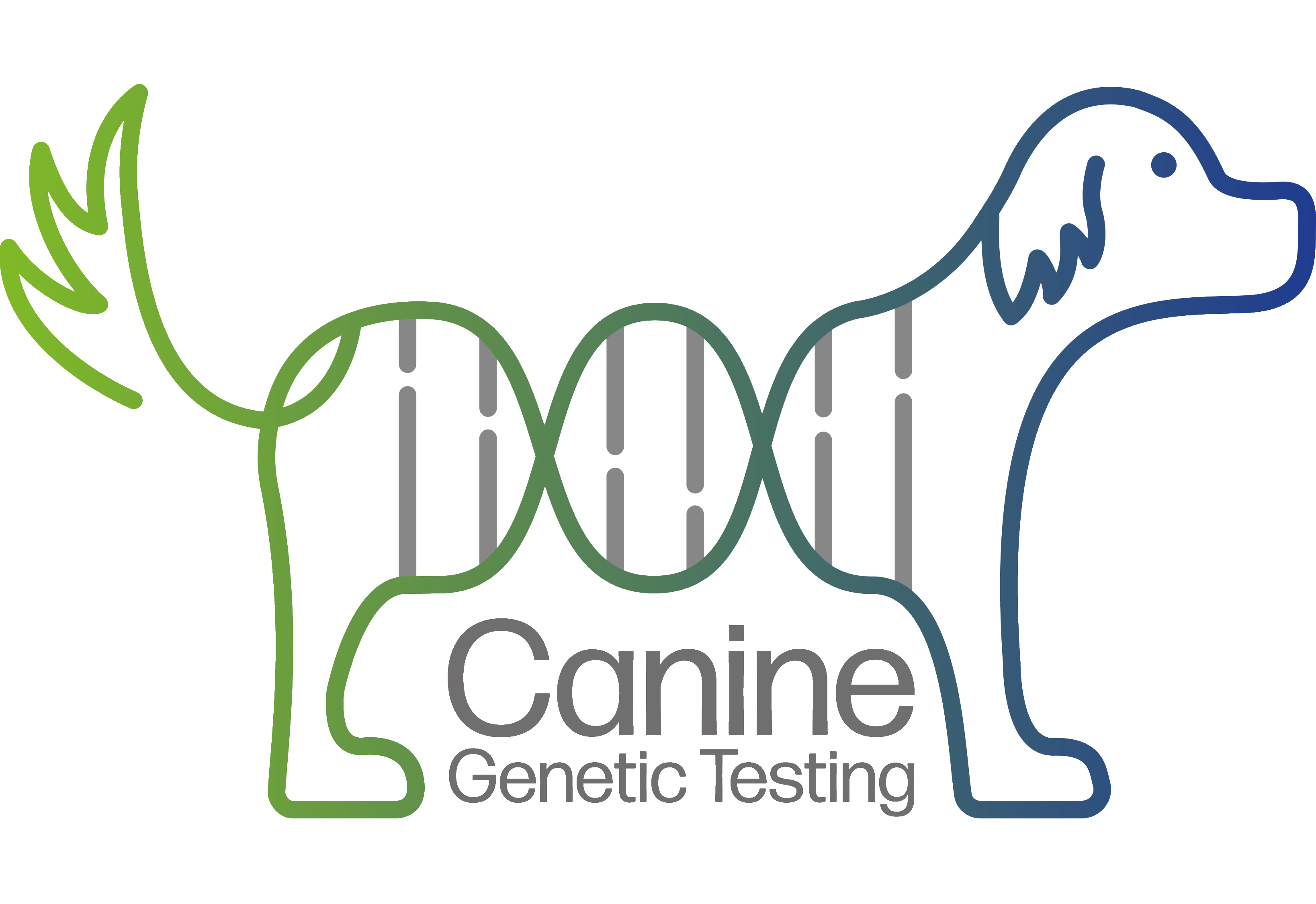
Comments are closed